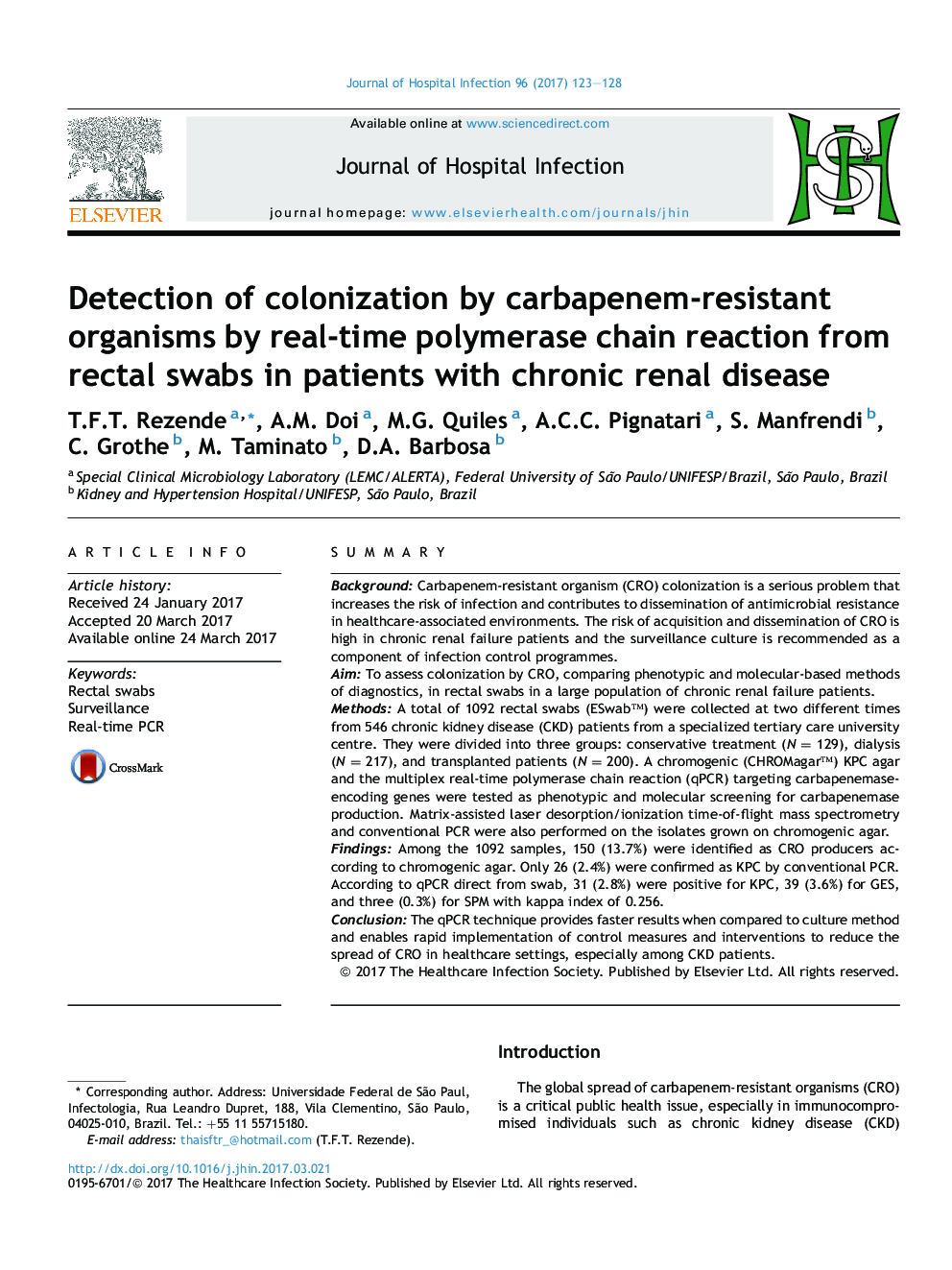| کد مقاله | کد نشریه | سال انتشار | مقاله انگلیسی | نسخه تمام متن |
|---|---|---|---|---|
| 5668210 | 1407892 | 2017 | 6 صفحه PDF | دانلود رایگان |
SummaryBackgroundCarbapenem-resistant organism (CRO) colonization is a serious problem that increases the risk of infection and contributes to dissemination of antimicrobial resistance in healthcare-associated environments. The risk of acquisition and dissemination of CRO is high in chronic renal failure patients and the surveillance culture is recommended as a component of infection control programmes.AimTo assess colonization by CRO, comparing phenotypic and molecular-based methods of diagnostics, in rectal swabs in a large population of chronic renal failure patients.MethodsA total of 1092 rectal swabs (ESwabâ¢) were collected at two different times from 546 chronic kidney disease (CKD) patients from a specialized tertiary care university centre. They were divided into three groups: conservative treatment (N = 129), dialysis (N = 217), and transplanted patients (N = 200). A chromogenic (CHROMagarâ¢) KPC agar and the multiplex real-time polymerase chain reaction (qPCR) targeting carbapenemase-encoding genes were tested as phenotypic and molecular screening for carbapenemase production. Matrix-assisted laser desorption/ionization time-of-flight mass spectrometry and conventional PCR were also performed on the isolates grown on chromogenic agar.FindingsAmong the 1092 samples, 150 (13.7%) were identified as CRO producers according to chromogenic agar. Only 26 (2.4%) were confirmed as KPC by conventional PCR. According to qPCR direct from swab, 31 (2.8%) were positive for KPC, 39 (3.6%) for GES, and three (0.3%) for SPM with kappa index of 0.256.ConclusionThe qPCR technique provides faster results when compared to culture method and enables rapid implementation of control measures and interventions to reduce the spread of CRO in healthcare settings, especially among CKD patients.
Journal: Journal of Hospital Infection - Volume 96, Issue 2, June 2017, Pages 123-128
